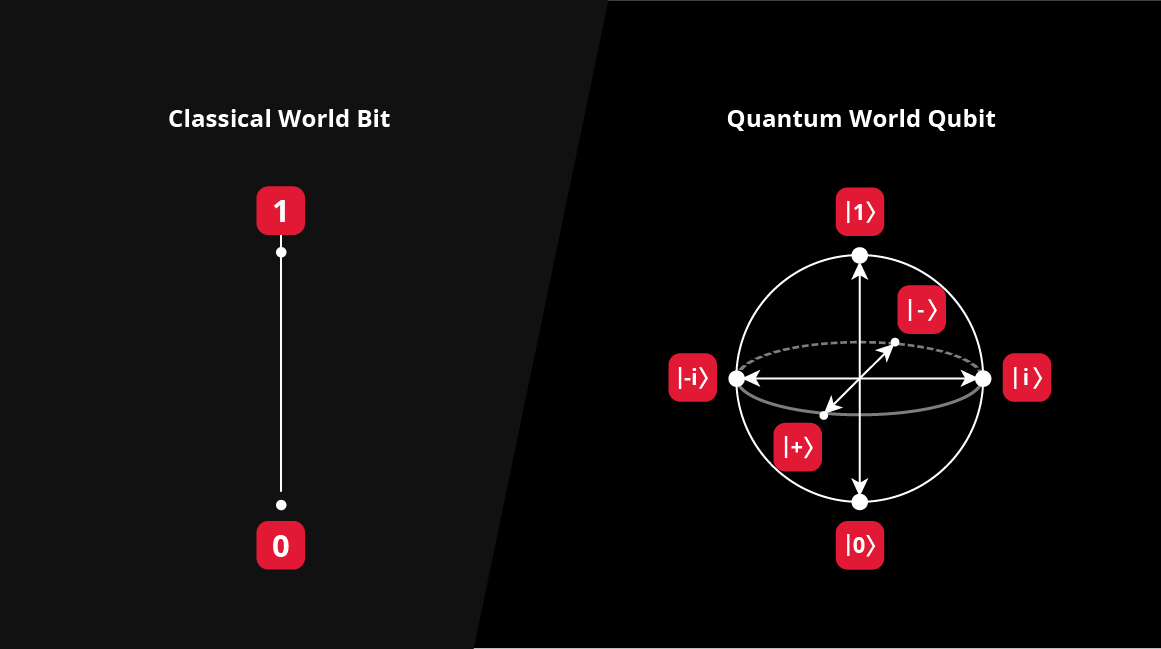
A quantum computer uses the properties of quantum mechanics to achieve incredible amounts of processing power.
The Third State Makes the Difference
For context, the classical computers we use today store information as a bit: an electrical or optical pulse that represents either a one or a zero.
On the other hand, quantum computers store information in quantum bits, or qubits—usually a subatomic particle like an electron or a photon.
Like classical bits, qubits can be a one or a zero, but they also have a third state: both one and zero—or either (in terms of the diagram above, the position could be anywhere on the sphere). This state of uncertainty is called superposition, and it allows quantum computers to do additional streams of calculations at the same time.
Quantum computers can also take advantage of quantum entanglement—in which two qubits are in the same state no matter how far apart they are—for exponentially more processing power.
Pros and Cons of a Quantum Computer
The main advantage of quantum computers is that they can perform some kinds of tasks, like encryption and decryption, very quickly. For some kinds of tasks, however, classical computers are still faster.
The main problem with quantum computers is that they’re not very reliable. They’re incredibly sensitive to changes in temperature and electrical disturbances of any kind, which can knock a qubit out of superposition. This means they have to be kept isolated and at temperatures close to absolute zero.

